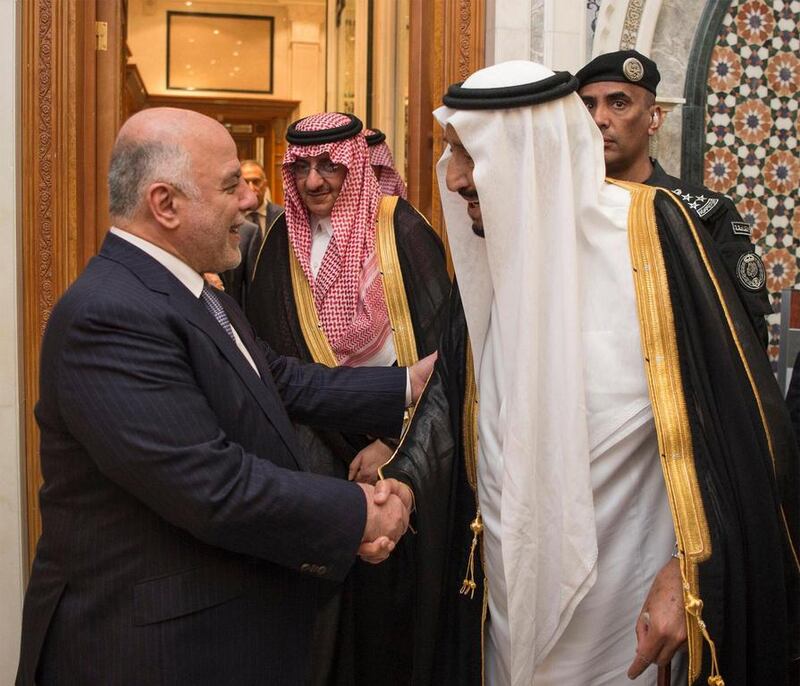The Iraqi Government has moved to strengthen ties with Saudi Arabia, two days after Saudi Crown Prince Mohammed bin Salman received Iraqi cleric Moqtada Al Sadr in Jeddah.
After its regular cabinet meeting, the government decreed establishing a committee, headed by Iraqi minister of interior, and including ministers of trade, industry, minerals and agriculture, dedicated to this effort.
Iraq will seek to "strengthen economic and investment relations with Saudi Arabia", according to a statement from the cabinet, explaining that the deputy ministers of finance and water resources, in addition to a number of other officials would be tasked with "following up talks with the relevant entities in Saudi Arabia". The cabinet decision is aimed at improving cooperation with Riyadh in areas of trade, industry and agriculture, in both the public and private sectors.
This is the first such move from the Iraqi government, which has had strained relations with Saudi Arabia for several years. However, since the beginning of this year, there has been a concerted effort from both Riyadh and Baghdad to improve ties. The easing of tensions began with a historic visit of Saudi Foreign Minister Adel Al Jubeir in February, the first for a Saudi Foreign Minister since 1990. This was followed by several high level visits between the two sides. King Salman met with Iraqi Prime Minister Haider Al Abadi in March on the margins of the Arab League Summit, which led to Al-Abadi visiting Saudi Arabia in June. Iraqi minister of interior, Qassim Al Araji's visit to Saudi Arabia last month was seen as a success in beginning security cooperation, especially in regards to the 900 km border between the two countries.
The Saudi visit of Mr Al Sadr was his first in 11 years. The Shiite cleric, who comes from a powerful line of religious figures, commands huge support in Iraq, leading vast protests against government.
The frequency of visits has been an indicator of renewed Saudi efforts to engage with Iraq, in addition to Mr Al Abadi’s interests in ending years of tensions with Iraq’s most important Arab neighbour. Several Iraqi politicians are also seeking closer ties to Saudi Arabia as a way to counter Iran’s bold interference in Iraq. As Iraq’s elections approach, slated for next spring, external ties will likely be at the forefront of party politics.
Iraqi media reported that both Iraqi vice president Ayad Allawi and Iraqi politician Ammar A lHakim had received invitations to visit Saudi Arabia in the near future. Iraqi sources have indicated that Mr Allawi and Mr Sadr could be part of a new political bloc that emerges to contest the elections against Iranian-backed parties. Both Mr Allawi and Mr Sadr have been very vocal in their criticism of Iran’s role in Iraq, especially in supporting some of the more extreme armed militias.





